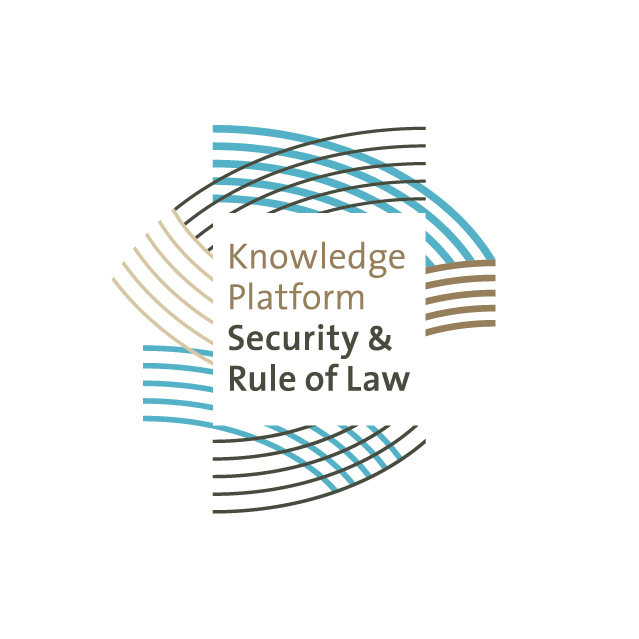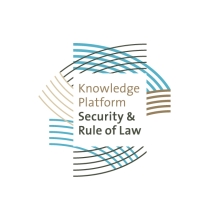On the 11 December 2018, the Knowledge Platform Security and Rule of Law will host a workshop on the theme Strengthening Knowledge Absorption: Identified Pathways and Obstacles.
Scope
While both practitioners/researchers and policy-makers strive to improve the delivery of programmes and the effectiveness of policy, they are operating on different “sides” of the evidence system. On the supply-side, practitioners and researchers generate knowledge, and on the demand-side, policy-makers use evidence. Unfortunately, supply-side and demand-side actors often work without a full understanding of the context in which the other operates. There is often a lack of awareness of the technical nature of research and programming work, on the one hand, and the complexities of policy development and implementation on the other hand. This can often lead to misunderstandings and loopholes. Elaborated strategies to communicate knowledge (on one side), and to increase knowledge uptake capacities (on the other side) are crucial for knowledge absorption. This includes generally purposeful and adaptable approaches covering a set of complementary and interrelated actions, at various levels (context analysis, stakeholder engagement strategy, innovative communication and capacity building…).
Key Questions
Through this workshop, participants will explore conditions for an effective knowledge absorption. Participants will discuss major factors shaping evidence uptake on the two sides of the system(practitioners/researchers and policy-makers).
We will reflect on the following questions:
- How well supply-and-demand factors interact in SRoL policy-making? And who needs to do what to ensure that we make the most of knowledge?
- Do policy-makers demand evidence?
- How well is knowledge communicated to policy makers?
- How well connected are policy makers and practitioners/researchers
- What innovative frameworks and knowledge translation processes have been tested and found to be useful in SRoL field within fragile settings?
- What methods for evaluating the impact of knowledge on internal decision making and external policy making provide the most useful information for improving learning as well as knowledge uptake
Background
The overarching objective of the KPSRL is to contribute to improving policy making and program implementation in the field of Security and Rule of Law. Knowledge generation and knowledge brokering are at the heart of the KPSRL Secretariat’s work to attain this objective. By investing in research into and debate and engagement about new and emerging insights and issues, lessons learned, and best practices, the aim is to foster the uptake of knowledge in the work of policy makers and practitioner organizations, which in turn is expected to enhance its quality and impact.
The Secretariat has gathered significant experience in brokering and fostering the generation of knowledge in the past years. Reflecting on this work and in seeking to continuously improve it, however, a series of conceptual and practical questions regarding the uptake of knowledge in the security and rule of law field has been identified, which the Secretariat would like to explore further with intensive participation of network stakeholders.
With this aim in mind, the KPSRL has initiated since July 2018, the learning and knowledge uptake in practice workshop series.
The workshop series aims to unpack learning and knowledge uptake practices as well as dynamics of KPSRL’s community members, and to develop strategic approaches for:
- a better use of knowledge and research produced within the community
- the development of a common understanding of pathways to using that knowledge and
research for policy and program improvement
Outcomes of the series will feed into a scoping study in progress, which builds on initial activities conducted by the Secretariat to better understand the organizational and network learning dynamics of KPSRL members and ways for the KPSRL to foster these. A first scoping study has been carried out in 2017 and it provided the basis for the development of KPSRL Theory of Change. The results of this second study are meant to enable the Secretariat to improve its Theory of Change and thus to enhance the KPSRL’s ability to achieve its overarching objective.
At the same time, the exercise will allow KSPRL’s secretariat to take stock of the extent to which knowledge is currently being incorporated in practice and policy-making within the network and to assess how it could play a better role in supporting these processes.
Two workshops during which, researchers and practitioners unpacked the fundamental concepts related to learning as well as evidence-based policy making, and scrutinized their own (formal and informal) organizational learning approaches and dynamics, were held in July and September 2018.
The KPSRL is pleased to invite you to the 3rd workshop of the series which will take place on the 11th of December 2018 at Zeestraat 100 (2nd Floor),The Hague.
More information on the thematic scope of this 3rd workshop can be found above, along with other practical details.
Participation: Registration is required.
To register or for any enquiries, please contact Messina Laurette MANIRAKIZA at [email protected].
Regular updates on the workshop series programme will be found on the KPSRL’s website. We warmly invite practitioners, researchers as well as policymakers from security and rule of law field to join us in discussing why "uptake" matters and how to foster it.
- a better use of knowledge and research produced within the community
- the development of a common understanding of pathways to using that knowledge and research for policy and program improvement
- How is information generated(at various levels of the organization)?
- Is that information distilled and transformed into knowledge? If yes, how?
- Is that available knowledge used to develop procedures, policies, and particular approaches to work? If yes how?
- Is that knowledge generation a conscious or unconscious exercise? Or both?
- Are the necessary conditions, systems, processes and incentives in place to ensure the uptake of knowledge?(internal as well as external uptake)


